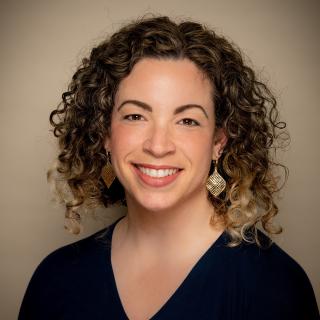
It’s been more than 25 years, but I still remember it like it was yesterday: The hushed quiet; the sunlight that streamed through the high, square windows and washed over the books at the top of the stacks; the kind-faced librarian in her brown polyester pants.
But mostly I remember that feeling as I entered the library, the relaxation I felt even as a child as the stresses of my outside world — the math problems I struggled with; my parents’ arguments at home — fell away. The library was the safest place, the only place where I could make all my own choices. Inside the library, I was in charge.
This is how I always believed libraries would be for my own kids: Magical places, where personal choice is sacrosanct and their world is temporarily perfect.
That is until a couple of months ago, when I read about a Seattle mother who had blown the whistle on the libraries’ dirty little secret: Patrons who watch Internet porn at the public computers, and the fact that children can easily and unwittingly see the content.
I knew that our libraries don’t filter web content and that this is what some people do with their time, but I never lingered on it before because my kids were too young to notice: It’s easy to keep toddlers corralled in the children’s section of the library.
Suddenly, though, my children are at ages (5 and 7) when nothing goes unnoticed. My husband and I have to be more careful about what we say and do at home, because little ears and eyes are alert. I cannot, just for the sake of comparison, watch porn at home unless I am behind a locked door.
So should I be giving my growing kids free reign at Seattle public libraries?
I tried to do some research (and I don’t mean the kind of research the porn-peepers at the library are doing). The readers’ comments section that appended the story on The Seattle Times website and my neighborhood moms’ group were aflame with debate pitting free speech against pleas for common sense:
Those arguing against porn filters suggest that parents should monitor their children instead of letting them “run wild in the library”; that nudity and violence are everywhere so we had better just “deal with it”; and that banning pornography is the first step down a slippery slope of censorship demands for dozens of types of content (I worry about this, too).
Many of the retorts are understandably flabbergasted: Why not stock print porn at the libraries, then? Stream porn on Metro buses, why don’t we? Un-blackout the strip club windows? Allow kids to stream X-rated content in schools?
After trying to find the right answer, I’m left feeling like a dog chasing its tail: Exhausted but getting nowhere.
As a citizen, I want to preserve our right to free speech (as disruptive as that “speech” can sometimes seem). But as a parent, I want to preserve my children’s innocence on the topic of pornography until they are at the proper emotional stage to understand it.
I don’t really get why libraries are not working harder to mitigate this issue by restructuring layout and using better privacy screens. I do believe at least some of the controversy could have been avoided if our public libraries and the people tasked with running them responded more proactively to concerns. As it stands now, the general response to parents from the library system seems to be a holier-than-though “nothing we can do, sorry.”
If the library system was a company, their customer service would be in the toilet, to say nothing of their responsibilities to shareholders.
As parents, we could protest. Believe me, the thought entered my mind. But when it comes down to it, I just can’t say they’re entirely wrong here; the librarians’ commitment to the law is understandable even if their sometimes righteousness baffles.
I could bully the porn watchers myself, but I’m betting most guys bold enough to watch porn in public aren’t going to be easily shamed by a Seattle mother shaking her own self-righteous finger.
Meanwhile, I’m left with the knowledge that if I let my children explore the library, following their curiosity and testing their independence in the way I believe libraries are meant to, my daughters will likely stumble upon some guy streaming hard-core sex. They might be ready for Harry Potter, but they aren’t ready for that.
So I’m left with this: I won’t consider the libraries totally off limits, but nor will they be our home-away-from-home sanctuary. Books are available everywhere — maybe not for free, but for pretty cheap — at local used book stores, Goodwill, and Value Village. I foresee a growing home library in our future. And our school library will be seeing a lot more of us, too.
I support free speech and the law, but I still can’t help feeling like the public porn watchers win this round. I’m sad that our family’s support of the public library system will be drastically reduced. I worry about the future of the library community and culture among those hallowed stacks. But my kids come first, and we can get book learning — if not library magic — elsewhere.
 Natalie Singer is a Seattle mother of two girls and a former Seattle Times journalist who has written for newspapers and magazines around the West. In between school drop-offs and coffee binges she writes essays and blogs at pugetsoundmom.com. She drives a sad minivan she has nicknamed “The Dumpster” that makes her feel like she is bitterly betraying her ten-years-ago self, and she cannot properly load the dishwasher. She loves her gardening/bicycle-commuting husband but thinks they need to go on more dates (she swears she’s going to find a babysitter this year). Her life is made complete by seven chickens, two hysterically barking dogs, a frail cat, and an obsession with cold sheets and scalding baths.
Natalie Singer is a Seattle mother of two girls and a former Seattle Times journalist who has written for newspapers and magazines around the West. In between school drop-offs and coffee binges she writes essays and blogs at pugetsoundmom.com. She drives a sad minivan she has nicknamed “The Dumpster” that makes her feel like she is bitterly betraying her ten-years-ago self, and she cannot properly load the dishwasher. She loves her gardening/bicycle-commuting husband but thinks they need to go on more dates (she swears she’s going to find a babysitter this year). Her life is made complete by seven chickens, two hysterically barking dogs, a frail cat, and an obsession with cold sheets and scalding baths.











